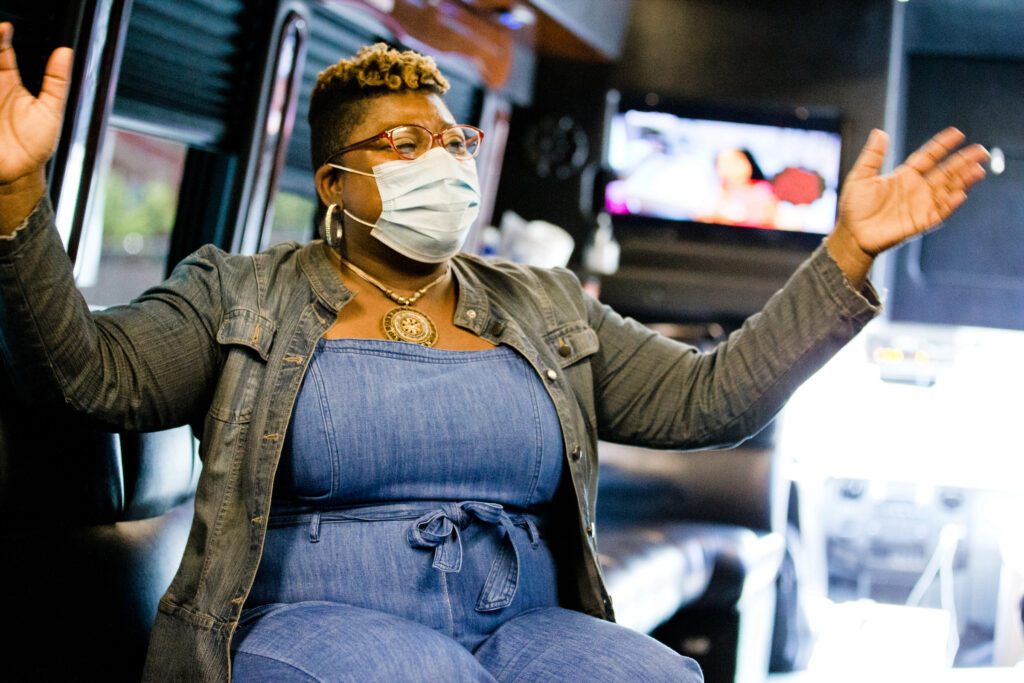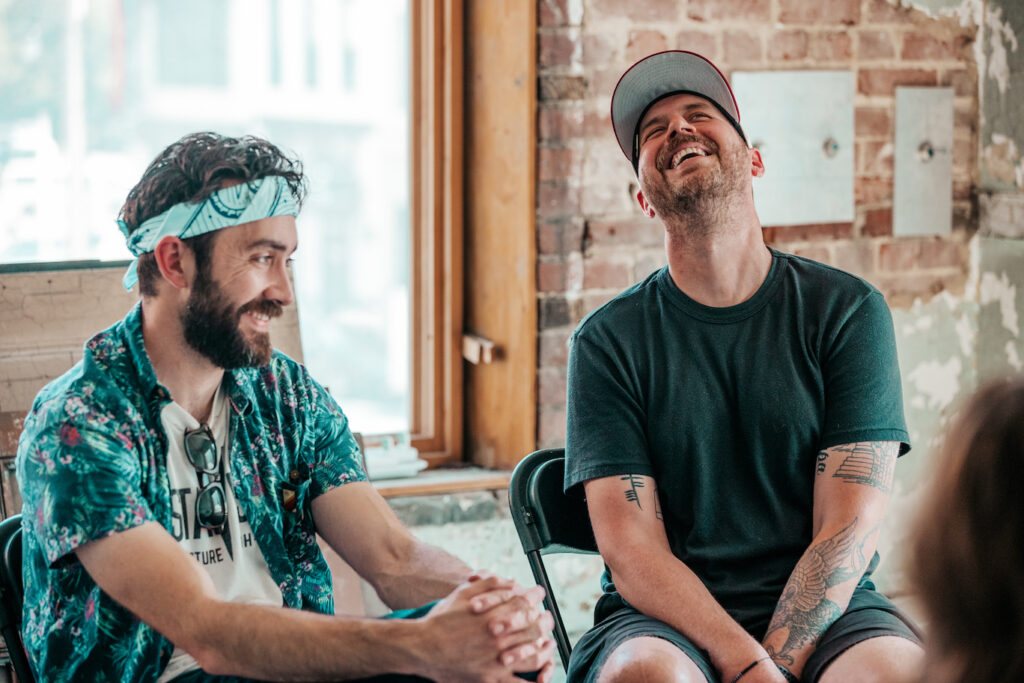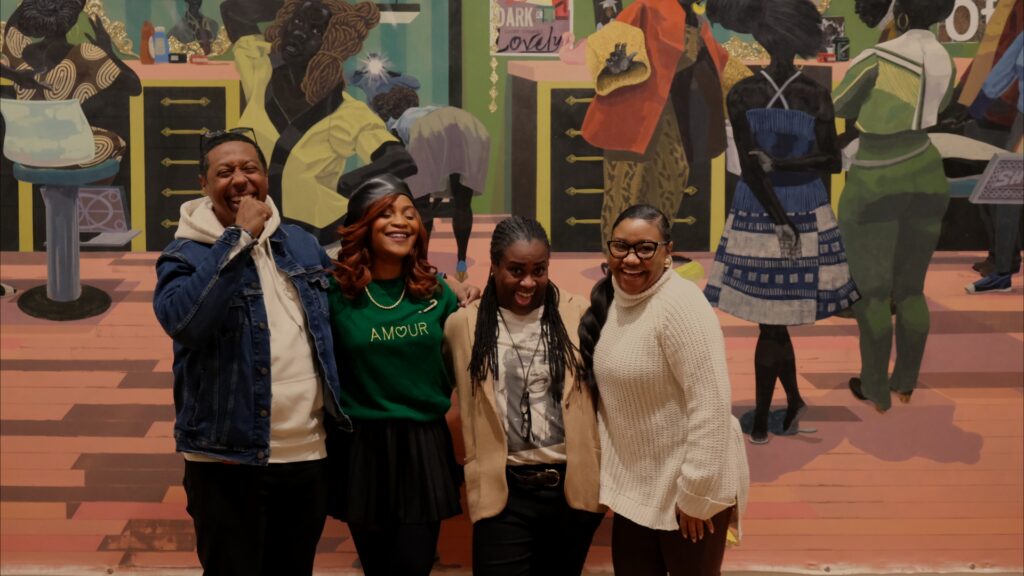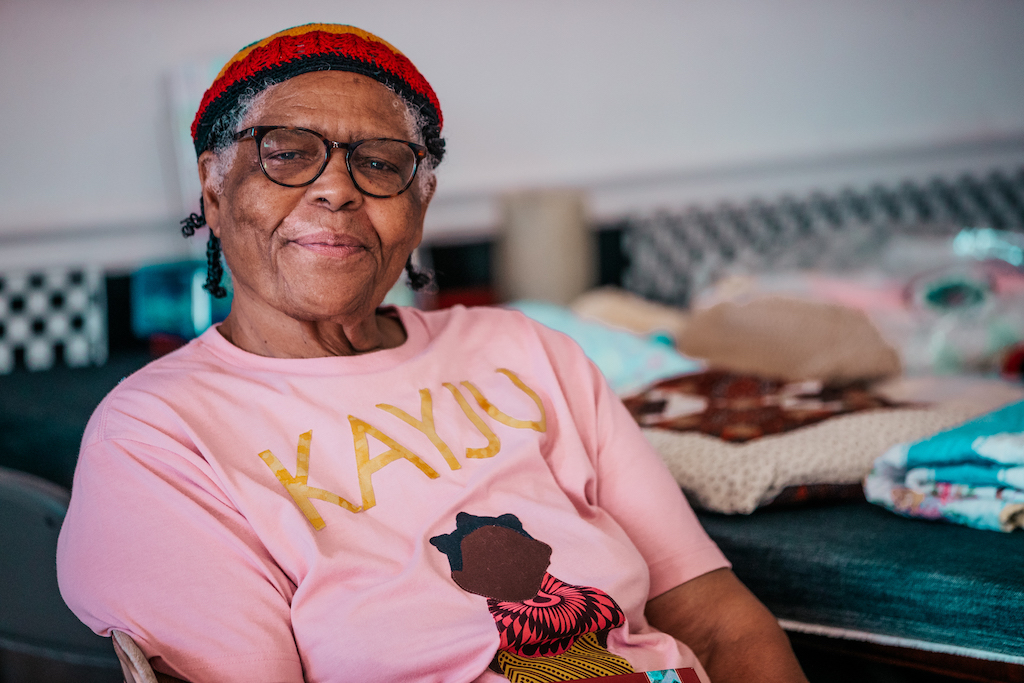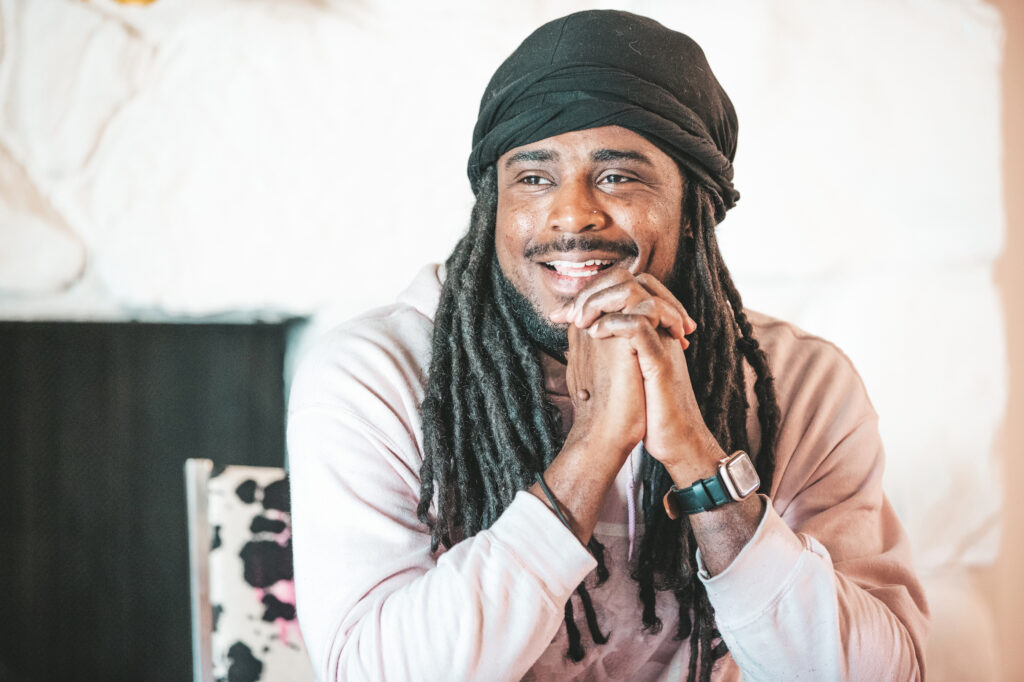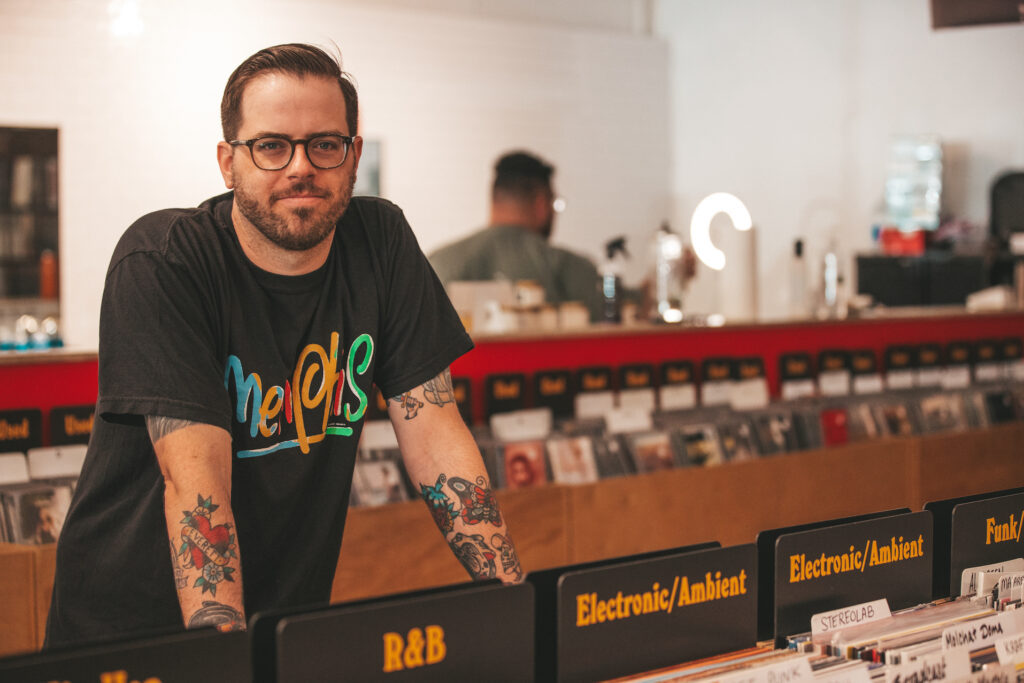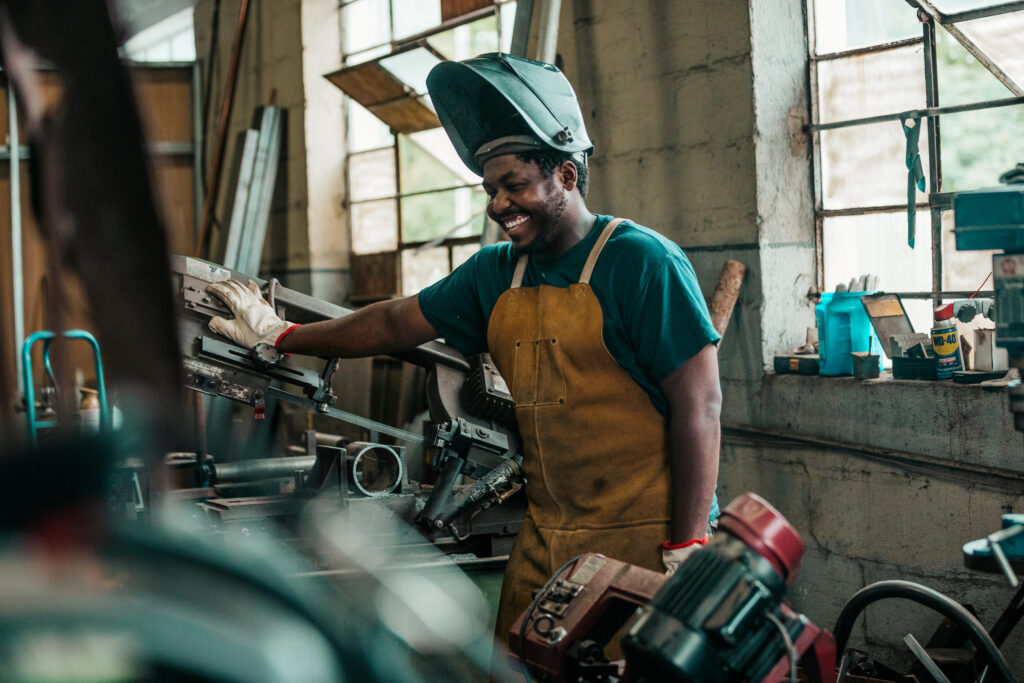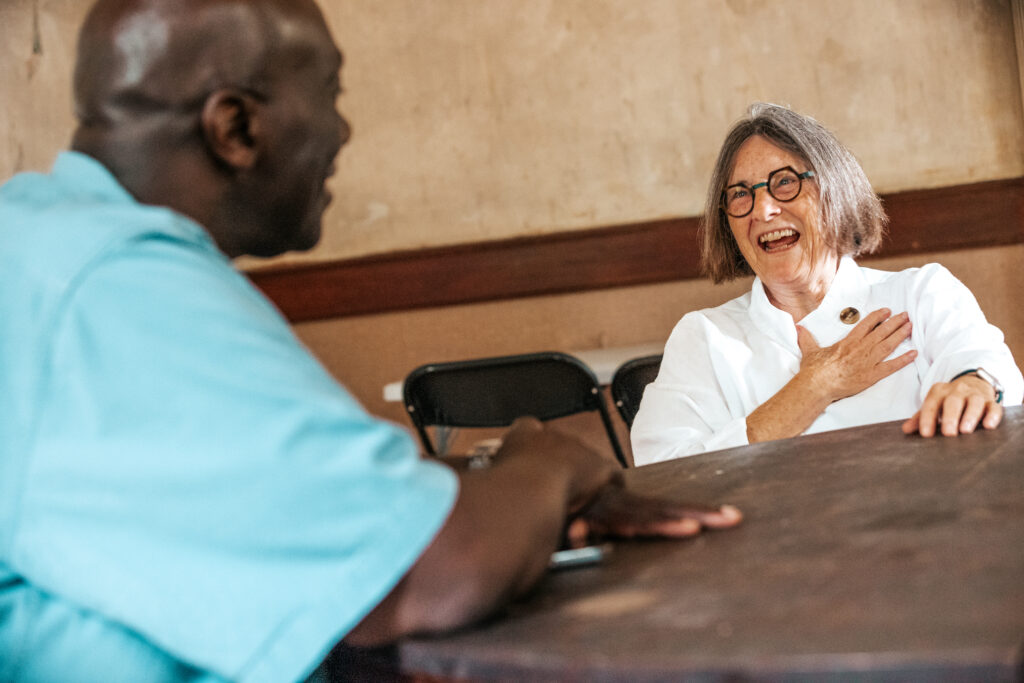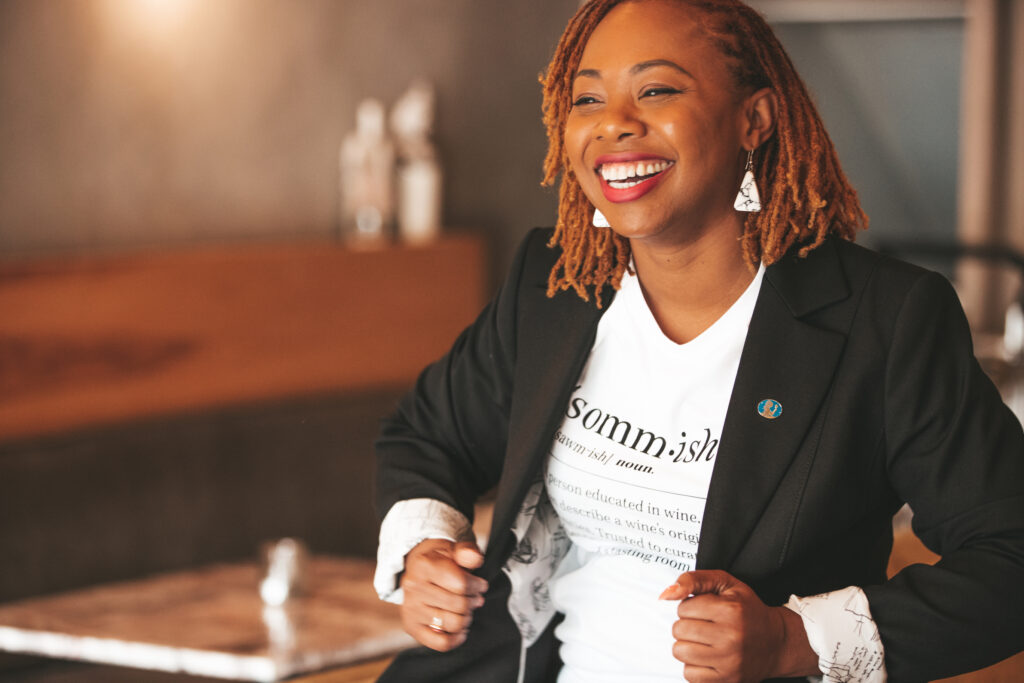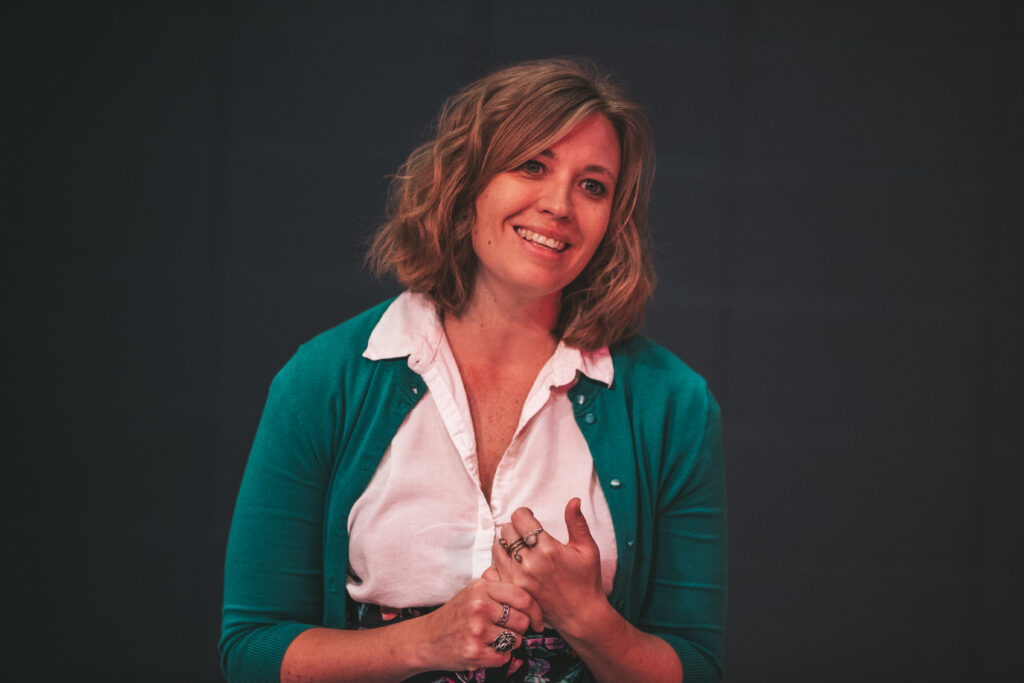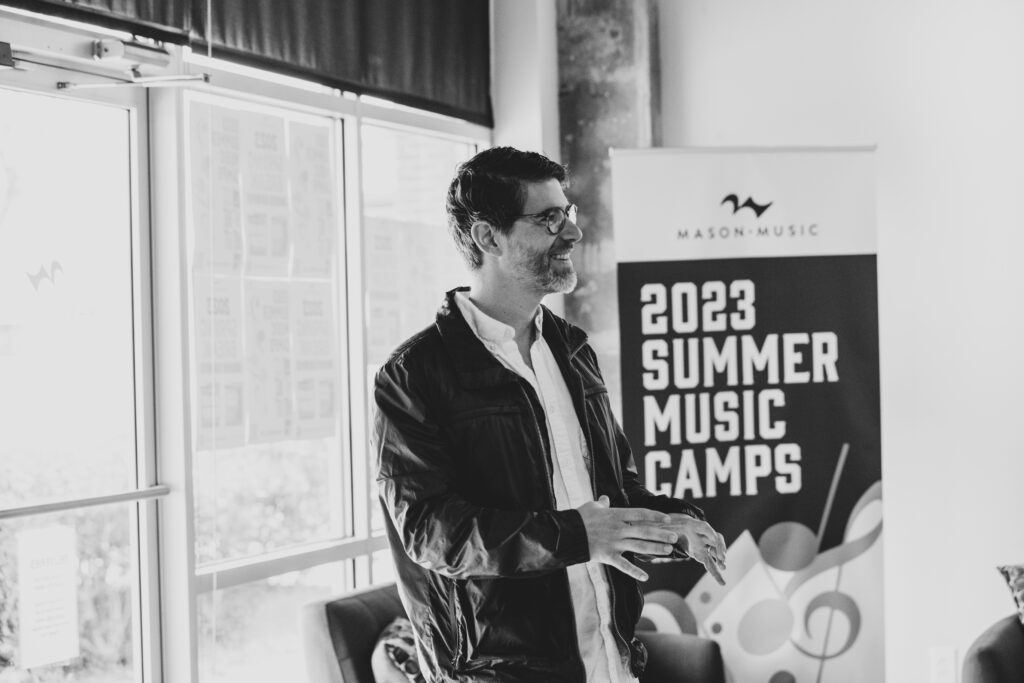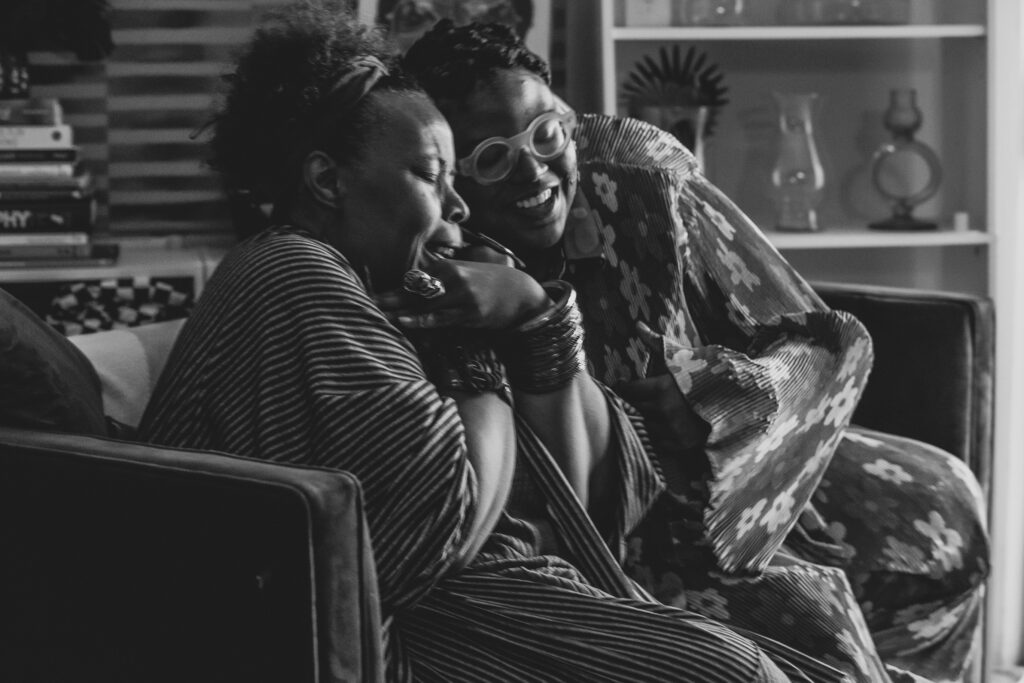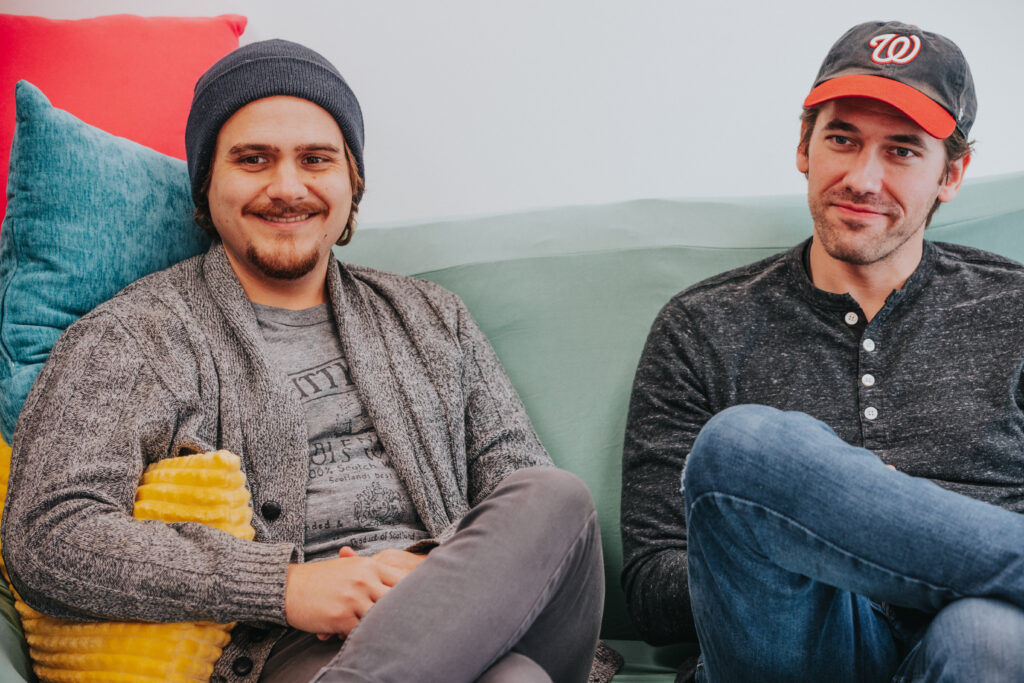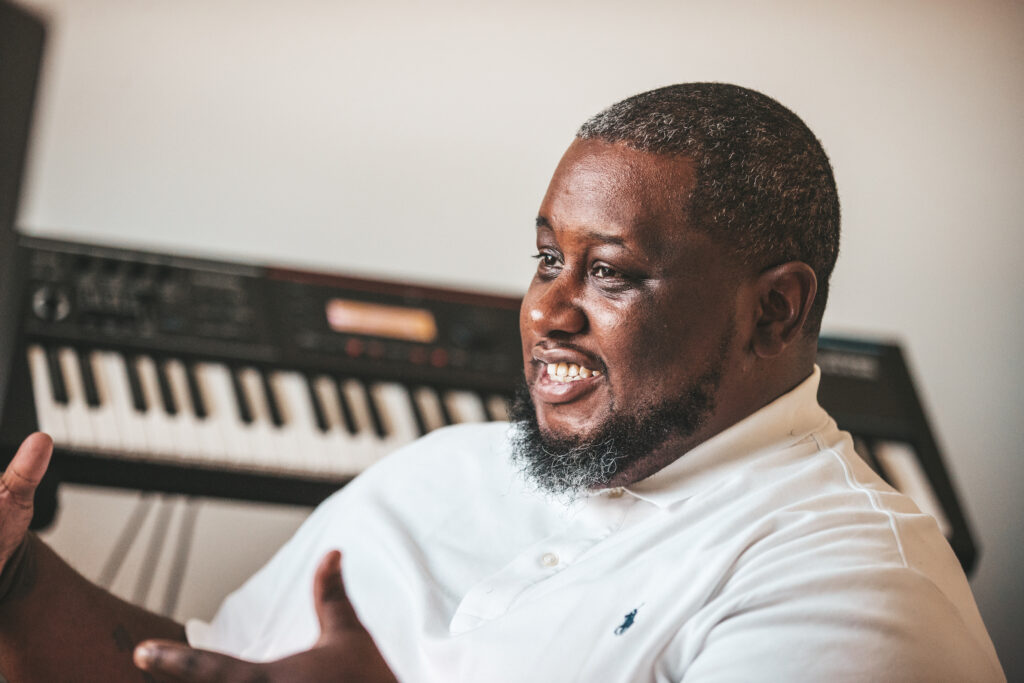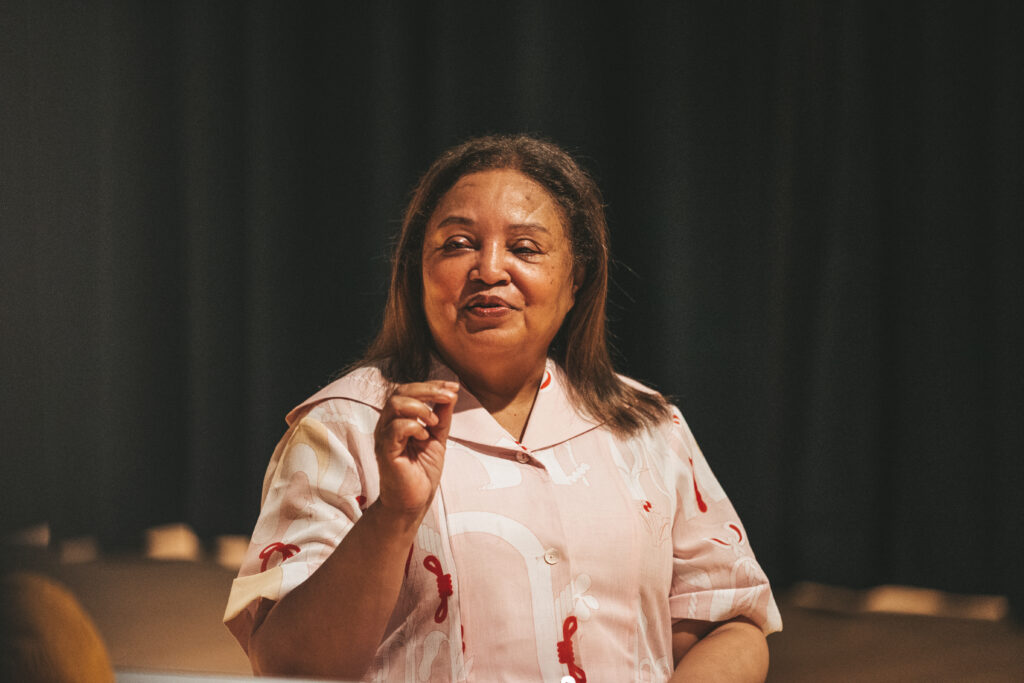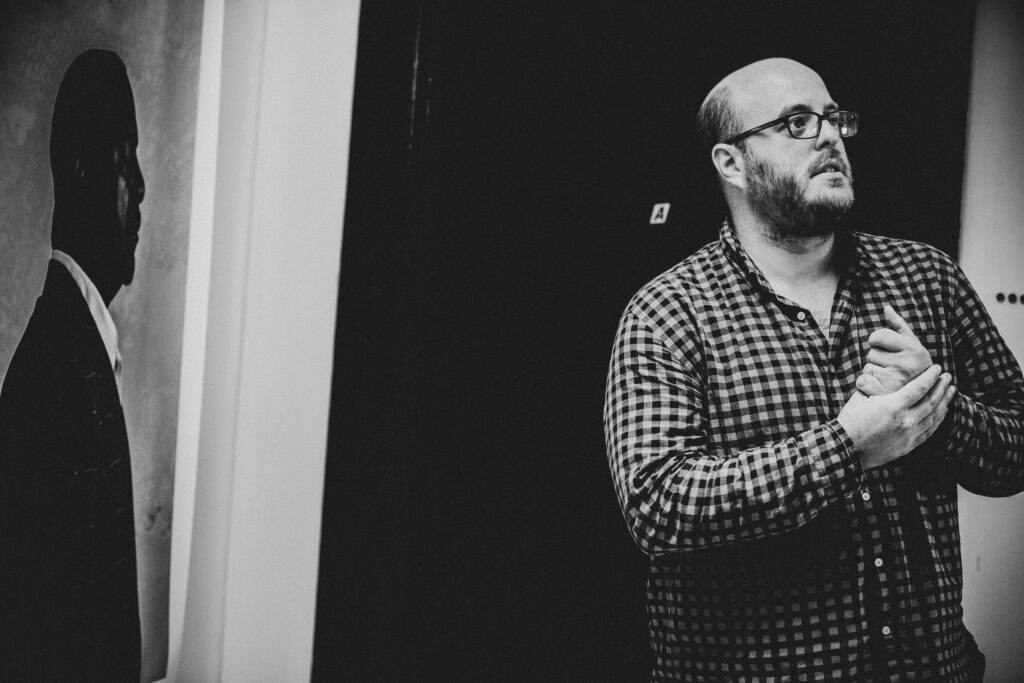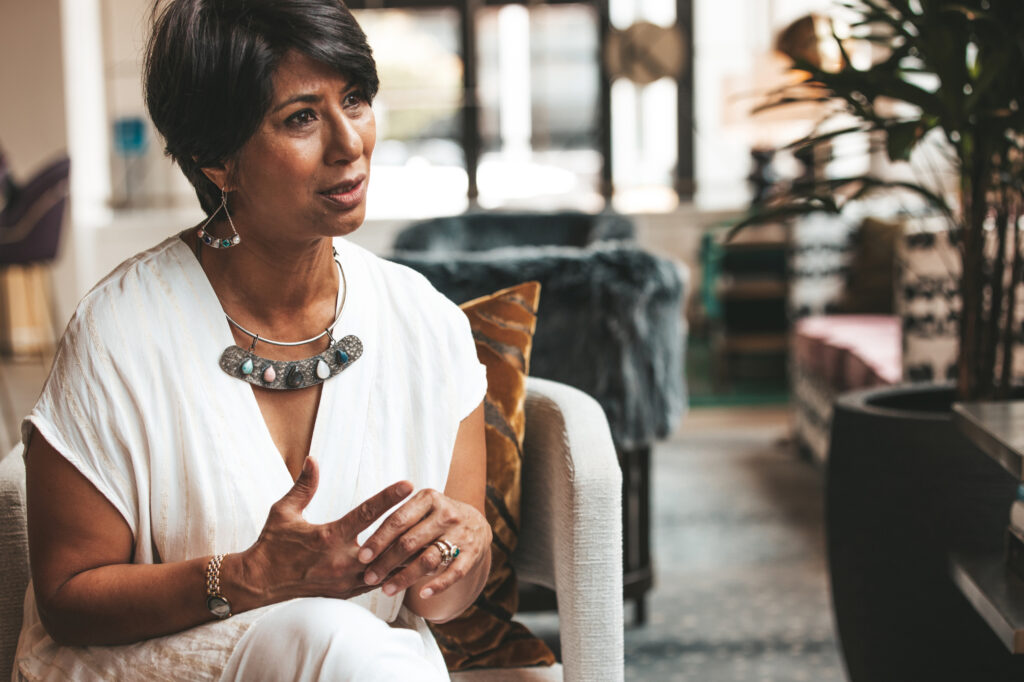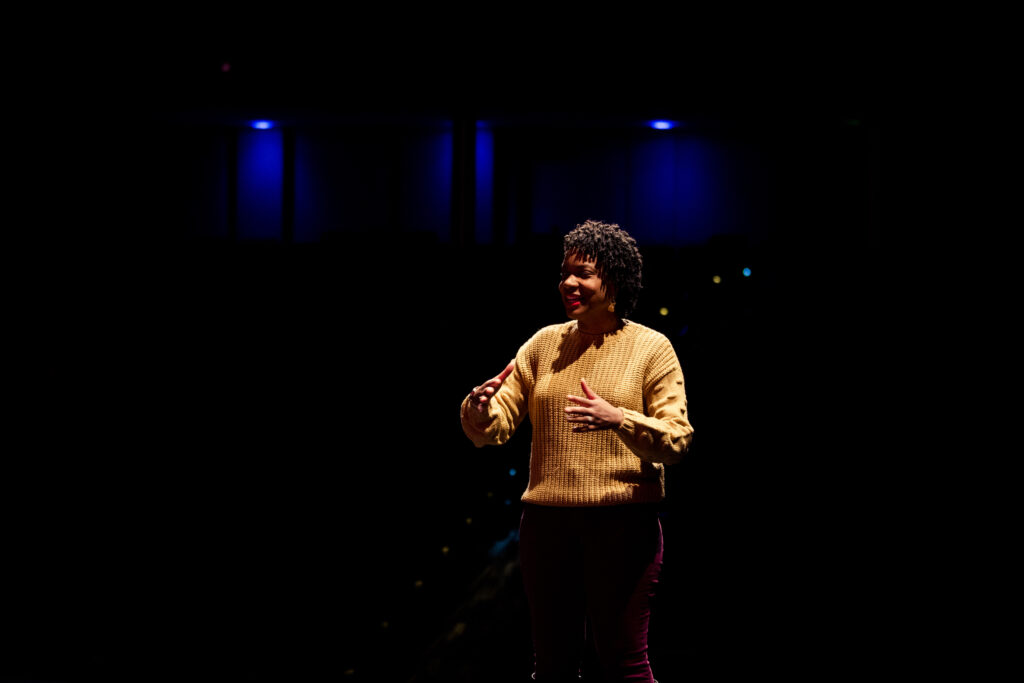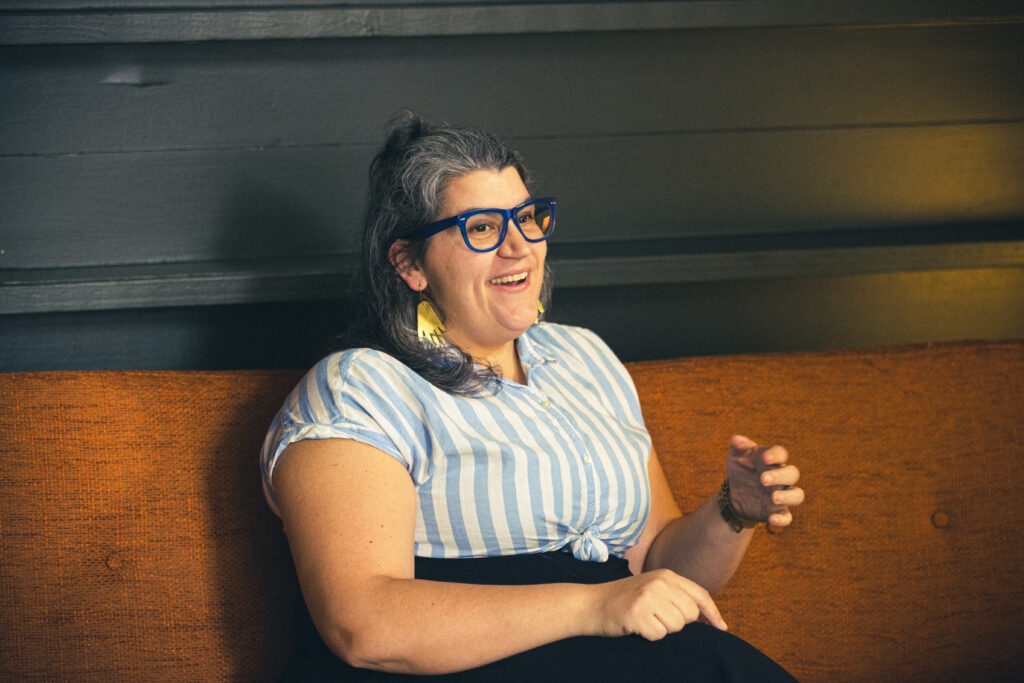Interview by Tonia Trotter
Photos by Ambre Amari
Cassandra King has built a business out of bringing people together. Whether it’s sharing her love of local cuisine, championing Black-owned spirits, or entertaining others with her authentic and warm brand of comedy, the performer has found success combining her passion with her purpose. The BeyGood award recipient calls herself Comedienne Joy and shares with us how she finds her own joy in life as a female entrepreneur, CO.STARTERS graduate, small business advocate, and connector.
How did you begin your journey as a multi-media comedian and local culinary personality?
The comedy came first. In 2004, the church I was going to at the time had a pastor who challenged the congregation to all become business owners and to ask God for guidance on a venture. People always told me I was funny. I wasn’t trying to be, but the stuff in my head just came out funny! I just always talked about the things that irritated me, and people would laugh! I was a single mother with a young daughter, and I knew that I needed to be a role model to her. I thought, “Well, I can talk about people in the church and get paid for it.” And my church community took care of me. They put my daughter through band and college. But I still had to hold down a full-time job. In 2014, I lost my mom. It was a wake-up call, and I realized I’ve only got this one chance to live the life I choose.
I leaned into comedy, and that led to a spot as a radio co-host with Joe Lockett on 101.1 FM. One day, Joe told me, “You’re always talking about food! Why don’t you do a food blog?” So, I started sharing on Facebook about some of my favorite local restaurants, and people started giving them more business. I figured I should be making some money out of that publicity, so I started my tv show Dining Out with Comedienne Joy, but I still hadn’t figured out how to capitalize on what I was doing consistently. That’s when I got the busses. Having people come along with me to have these culinary experiences together, where we get to share food, drinks, and a good time, that’s what I want to be about — connection.
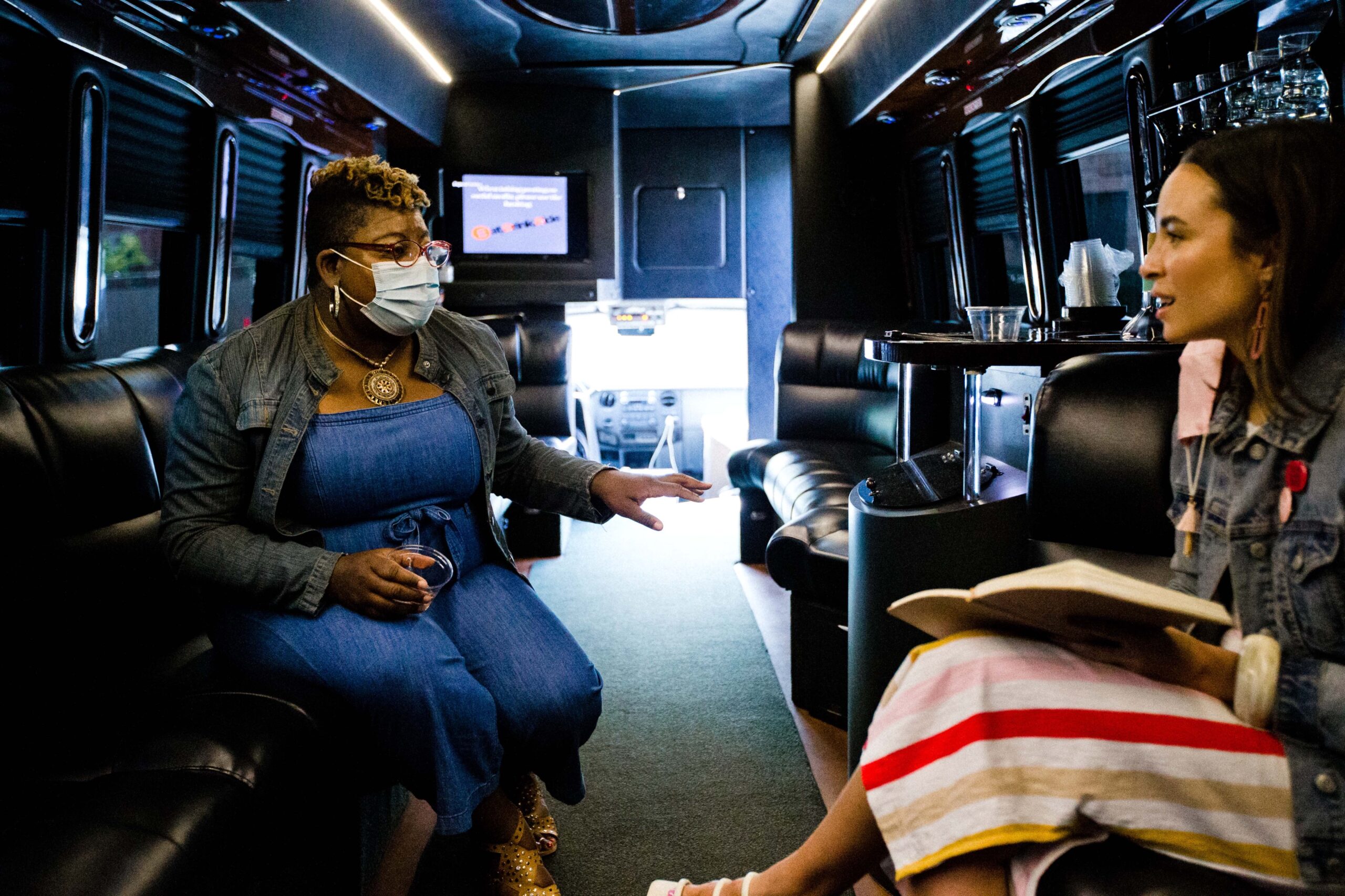 A lot of performers talk about finding a career in comedy as a way to deal with trauma. How did finding joy in the tough moments lead to finding yourself?
A lot of performers talk about finding a career in comedy as a way to deal with trauma. How did finding joy in the tough moments lead to finding yourself?
Comedy is my therapy. If something is bothering me, I can own it and turn it around by putting it on blast. Comedy is my way of saying, “You made me mad. I’m going to talk about you!” When I started, I was broker than broke. I looked to the Bible for inspiration, and the verses I read always talked about joy. That’s how I chose my stage name — Joy. I think that’s what we are supposed to take from our lives here. There’s joy in all things. Even now, if I get discouraged, I remind myself of that. I can’t be telling others to have joy if I’m not living it for myself. And when you live with that mindset, everything does work out.
You are a proud CO.STARTERS graduate! As a performing artist and a small business owner, how did this program grow your perspective on entrepreneurship?
The most important thing I learned or started to rethink was my time. You can’t get time back, and as a solo entrepreneur, I have to be incredibly mindful about how I’m spending my time. I am always doing one of the following — working on the bus, for the bus, or honoring my personal commitments.
I already had a business up and running, but CO.STARTERS helped me figure out how to get the funding necessary to grow my business and navigate the financial aspect confidently.
You recently received an award from the NAACP + Beyonce’s BeyGood fund. As the professional landscape finally begins to properly acknowledge Black female business owners, what important lessons have you learned personally?
I was born in Mississippi, but I’ve lived in Alabama most of my life. As a southern woman, we aren’t always accustomed to setting clear boundaries and being vocal about them. But the older I get, I am becoming more comfortable saying “No.” No is a full sentence; you don’t have to discuss further. You can’t shy away from talking about money. You’ve got to have money to run a business, and it’s something you have to get comfortable talking about.
I’ve experienced how the world has shifted for women in business. Once upon a time, we thought maybe we could go be a secretary. Now, it’s “Go be all you can be!” Empowerment has been a movement, and hopefully, women will continue to see change financially too.
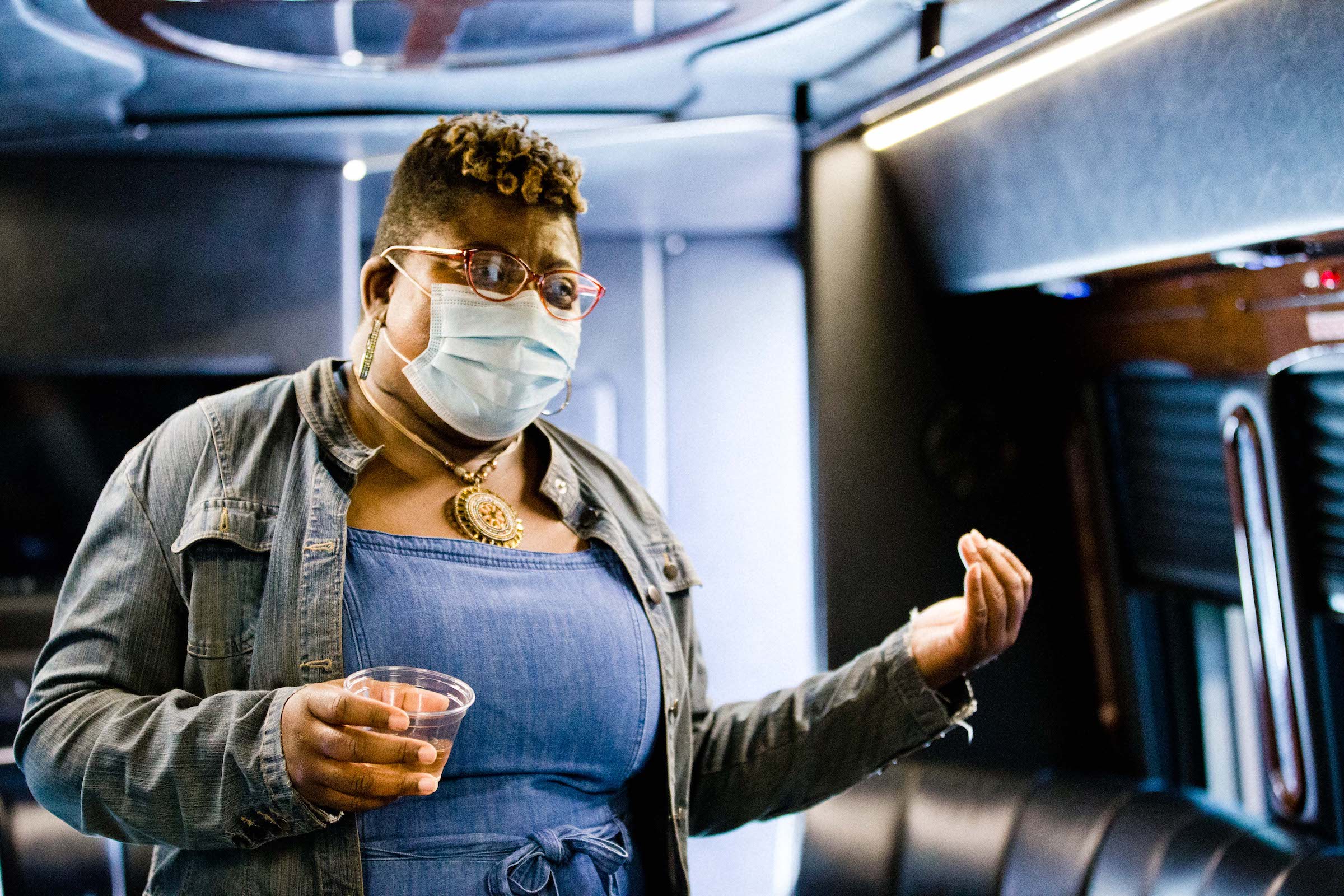 With that experience in mind, what would you tell your 20-year-old self? What do you tell yourself now?
With that experience in mind, what would you tell your 20-year-old self? What do you tell yourself now?
Be confident in your value, and don’t be afraid to ask for the money. There were times when I was afraid to ask for what I felt I deserved. But I learned to ask, pause, and then shut up. The more you go back and forth when discussing your fee, the more you open up an opportunity to be talked down. If I tell someone my fee is $500 and stop talking, then my fee is $500. You’re either going to be my client or not. Believing in my product or service is important too. I know that if someone comes on my bus, they’re going to have a good time, and they’re going to tell others. That helps me feel confident in establishing my value too.
The past year has been difficult for many in the hospitality industry. How was your business affected by the pandemic, and what shifts did you make?
Before COVID, I was producing my own tv show — documenting my visits to different restaurants. When everything shut down, I pulled the show because I wasn’t dining in, and I couldn’t financially support the show without running the busses. However, I learned about some virtual platforms I could use — like Streamyard. I was able to still engage with an audience, support local restaurants and bartenders, and stay present.
One difficult decision I had to make was to raise my prices during a pandemic. Because I needed to limit my capacity, I had to charge more per ticket. That’s a hard call, but I know what I do well and that’s showing people a good time. I started offering more — additional cocktail options, connecting with new restaurants, and rolling out the red carpet for my guests. I’m not kidding. I have a red carpet because I want my clients to feel like they are true VIPs for the night. Some of my restaurant partners shut down except for curbside offerings, but I still wanted to make the experience feel elevated.
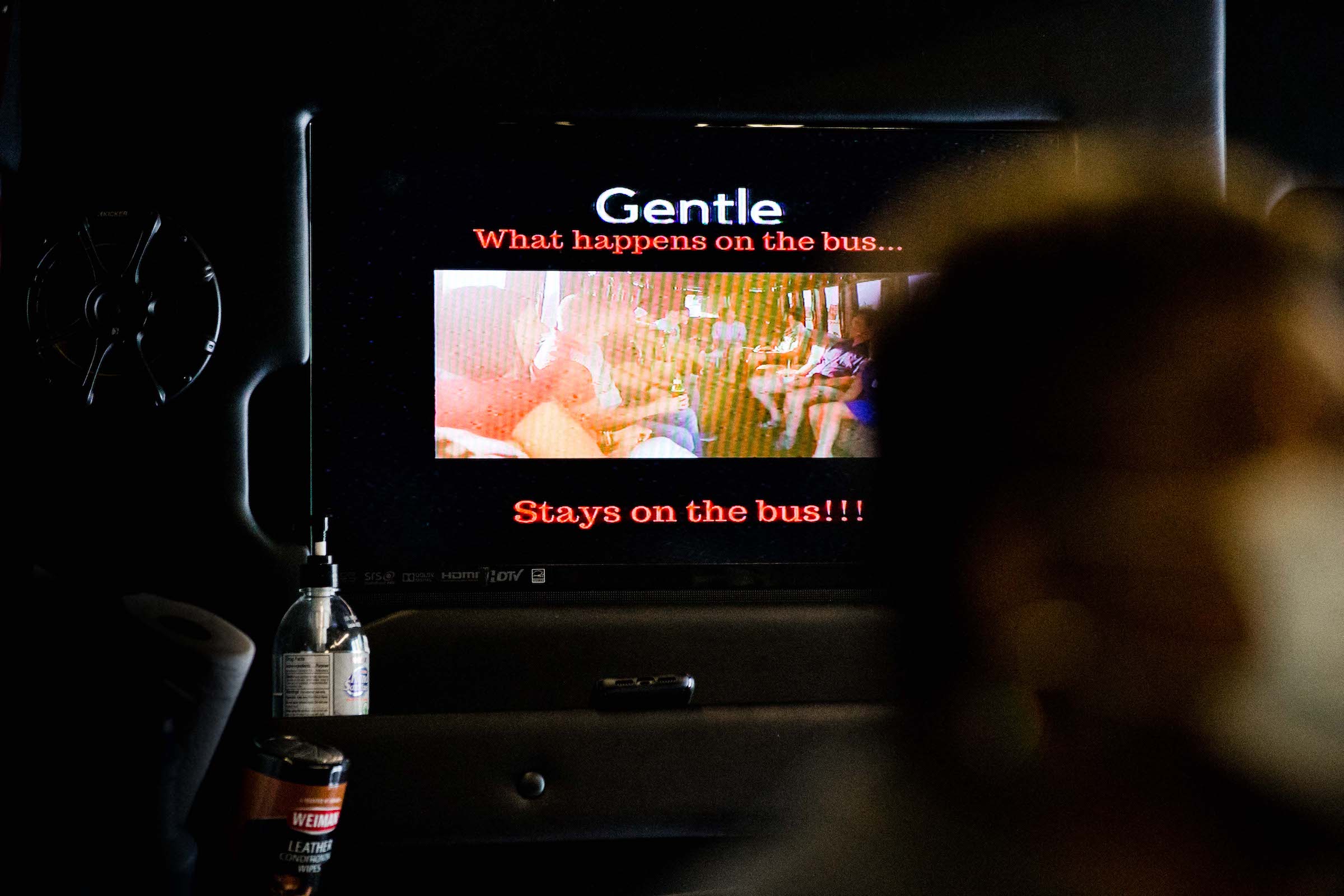 You mentioned earlier that there’s joy in all things. Where do you find joy and purpose in your work and how do you hope it impacts the world around you?
You mentioned earlier that there’s joy in all things. Where do you find joy and purpose in your work and how do you hope it impacts the world around you?
I love creating joyful experiences for others. I’m a connector. I love learning about products I love and the people behind them. When I love something, I want others to know about it and love it too, and educating others is a source of joy.
My experience as a Black woman is that Black people don’t have the same long-term exposure or connection to high-end distilleries and spirits. I have the opportunity to spotlight Black artisans and makers through my work. Black people have always been creating and inventing but couldn’t always afford patents or the counsel needed to advocate for patents. Many products have been marketed with our faces on the label, but with a white-owned company cashing in. You can’t help what you don’t know, but I can change that.
I only take guests to locally-owned restaurants where the food is amazing. It’s not always fancy, but it’s got to be good. I am giving my take on Birmingham cuisine, and there are so many good places to eat in this city where you can support small businesses.

